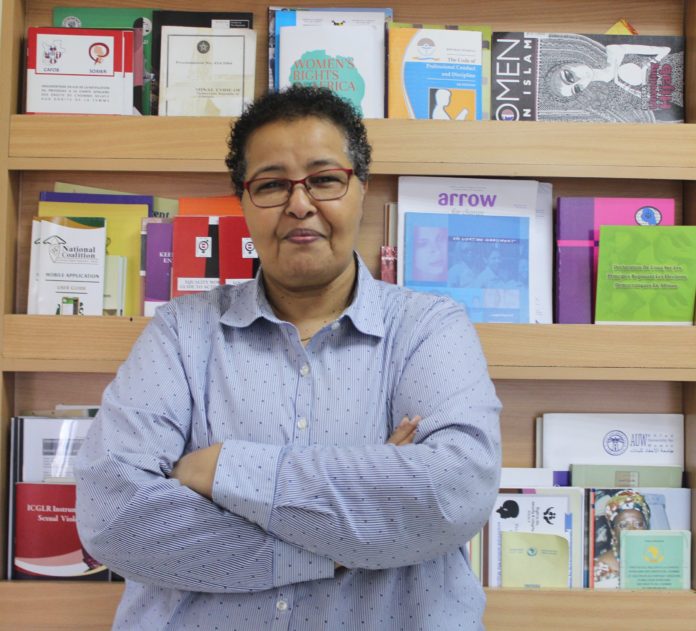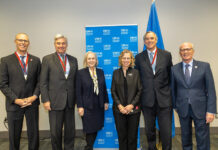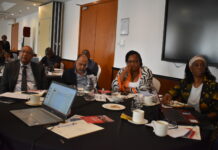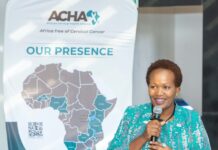By Winnie Kamau
As the world Celebrates Women making progress in their own spheres and expertise we are cognizant of the fact that getting Gender disaggregated data is becoming an impossibility not only in Africa. I met Faiza Jama Mohamed who is Africa Director for international women’s rights organization Equality Now and has extensive experience working towards a just world for women and girls.
Faiza has been instrumental in building several women’s organizations and is a key founder of the pan-African coalition Solidarity for African Women’s Rights (SOAWR). The Somali born Champion of Women rights was a driving force in the women’s movement in Somalia for twenty years and co-founded the country’s Coalition for Grassroots Women’s Organizations.
In 1998, she received the Hundred Heroines Award in recognition of her activism in support of Somali women, and in 2008, she was awarded the Hunger Project’s Africa Prize for Leadership for Sustainable End of Hunger. Her mantra: “Always be optimistic! Obstacles or challenges are temporary and they can be overcome with determination and persistent effort!
This was her take on her role in fighting for women’s rights and gender data in Africa
Q: How did you get into Activism and what made you focus on the plight of women?
I have never been a spectator. From a young age, I knew that if you do something, no matter how small, something has got to give and change will reverberate. If I did not like something I would speak up. This is Thanks to my parents; they were my big supporters and encouraged me. Inspired by them, I am calling on each one of us to speak up and take action to address human rights violations.
Q: What are your biggest achievements in championing women’s rights?
Positively impacting on the life of women and girls makes me feel happy and fulfilled, although I wouldn’t describe it as an achievement. Rights abuses exist in many forms, including female genital mutilation; child marriage; sex trafficking; sexual violence, harassment and coercion; and discrimination in the law. What matters to me is that the work I do with Equality Now is helping to bring a just world for women and girls closer to reality, and we can achieve this when countries have good laws in place and apply a multi-sectoral approach incorporating a range of strategies.
I have worked both directly and indirectly to help women and girls access justice when their country’s justice systems fail. One example of success dates back to 2001 when Equality Now and the Ethiopian Women Lawyers Association (EWLA) filed a case at the African Commission on Human and Peoples’ Rights after the Ethiopian justice system failed to apprehend perpetrators of a gang rape.
Late one night, Berew Jemma Negussie and a group of accomplices broke into the home of 13-year-old Ethiopian girl, Woineshet Zebene Negash, to kidnap and rape her. The perpetrators of this heinous act were arrested after her teachers reported the incident to the police. Woineshet was rescued but was later forced to sign a ‘marriage contract’ which would oblige her to marry her rapist. Shockingly, Woineshet’s case was not unusual in Ethiopia, where abduction was commonly used as a tool to force girls into marriage.
It took a long time to win justice for Woineshet, but 15 years after the case was originally filled the African Commission concluded that the Ethiopian state had not protected Woineshet and had failed in its duty to provide a decent justice system. In the ruling, the Commission instructed Ethiopia to pay her $150,000 in compensation. Furthermore, Ethiopia was required to put measures in place to deal with “marriage” by abduction and rape.
Q: What is your take on the availability of disaggregated gender data in Africa and in Africa?
There is a paucity of disaggregated data on the basis of gender in Kenya and by extension Africa, although several women’s organizations champion for gender-disaggregated data collection and collation. There is insufficient information on gender gaps, with much of the information is either out of date or not specific enough. Gender disaggregated data is crucial in advocating for women’s rights, specifically on issues such as representation in leadership, ending women’s rights violations, and achieving the Sustainable Development Goals. Without disaggregated data, governments and other actors will find it hard to make the right decisions in addressing inequalities and effectively supporting the advancement of women and girls.
Q: Is Gender data part of the role that you champion to ensure equality?
Equality Now does advocacy and campaigns to end discrimination and violence against women and girls. Data is crucial to our work on many levels, including enabling us to measure whether we are making progress.
Q: What do you think is the role of Open Data for women as you champion their rights?
Open Data will enable those campaigning for women’s rights to be more effective by contributing to and informing evidence-based advocacy and gender policy dialogues on critical issues.
Q: Do you think we will achieve Open Data for women in Africa?
I am optimistic. Nothing is impossible. What is needed is just commitment to make that happen.
Q: What would you like to encourage women during this day?
Commit to doing something. Commit to change the life of a woman or a girl to fully enjoy her human rights.














